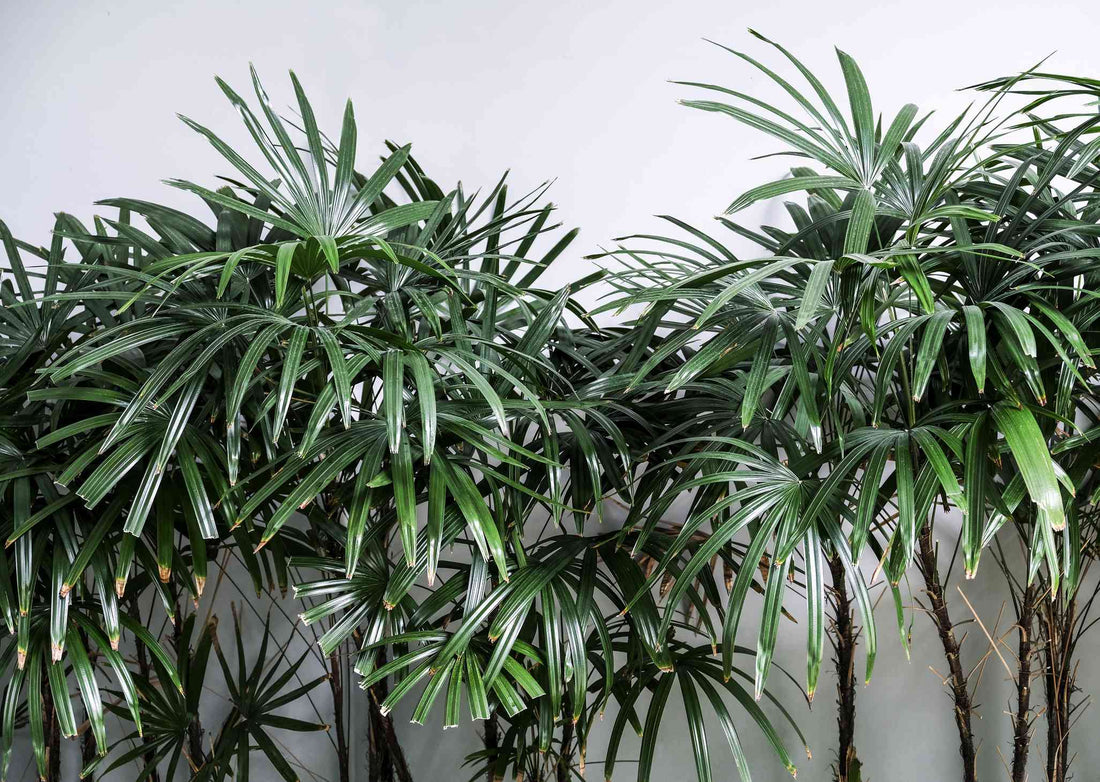
Rhapis Palm
Share
☀️ Light
This plant prefers bright indirect light, but can very easily adapt to low or medium indirect light - this is why you've probably seen it in offices and even shopping malls.
Do not place your plant in full sun as it can burn.
💦 Water
These palms like to dry out a little between watering. Using your finger, a chopstick, or a water meter, check your soil's moisture every week and water when the top 50% of the soil is dry.
Water thoroughly until water comes out of the drainage hole and allow to drain for 15-20 minutes. This is very important: never let your plant sit in water or soggy soil, as it can lead to root rot.
Lastly, try not to let this plant dry out completely. If you do, you might see brown leaf edges.
🐈 Pets
This plant is non-toxic according to the ASPCA and will not cause any adverse reactions if ingested by a household pet. Woof woof!
🧐 Common issues
Brown leaf tips
The most common causes for this include the soil drying out, extreme heat, or excess minerals in your tap water. Here's what you can do:
1. Check your watering routine and ensure your plant isn't drying out too much between waterings.
2. If this is not the problem, try using filtered water or let your watering can or jug sit with water in it overnight before watering. This helps get rid of excess minerals in tap water that can sometimes cause brown tips.
3. If you don't like the appearance of the brown tips, you can trim the edges of the leaves with a clean scissors. This will not cause the plant any harm.
Is the Rhapis Palm the right plant for you? Shop here.

